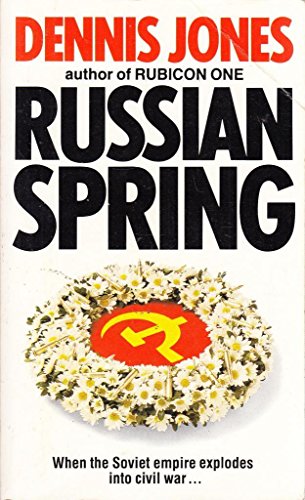
Russia in Fiction has developed a bit of a fascination for books published in the Chernenko era. We did not intend this. After all, Chernenko did not really have an era.
Konstantin Chernenko was in office as General Secretary of the Communist Party of the Soviet Union for less than a year from April 1984. He followed on from Yurii Andropov’s comparatively lengthy 15 months in that role. And both came at the end of nearly a decade in which the Soviet superpower had been ruled by a gerontocracy —between the time that Leonid Brezhnev died for the first time in 1976* and a sprightly Mikhail Gorbachev came to power at a mere 54 years of age in March 1985.
*According to Moscow News, in a revelation made during the Gorbachev years, Brezhnev was declared clinically dead in 1976 but was revived to carry on at the head of the Soviet superpower for six more years.
upi.com/Archives/1988/09/08/Brezhnev-once-pronounced-clinically-dead-revived
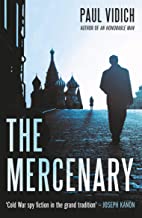
As Paul Vidich put it, when explaining why his novel The Mercenary (2021) was set during Chernenko’s brief time at the top, this was ‘the moment when the country’s illusion of dominance met the grim reality of a crumbling system’ (Tripfiction.com, 3 April 2021).
Dennis Jones did not choose the Chernenko period in the same way as Vidich did; he set Russian Spring (1984) in contemporary Russia. But Jones was astute enough to realise that Chernenko did not have long to go, and he used this as the premise for his second Russia-related thriller.
In all five of his Russia-in-fiction novels, Dennis Jones took the geopolitical events of the day, alighted on a particular aspect, and imagined a possible future of world-shaking impact.
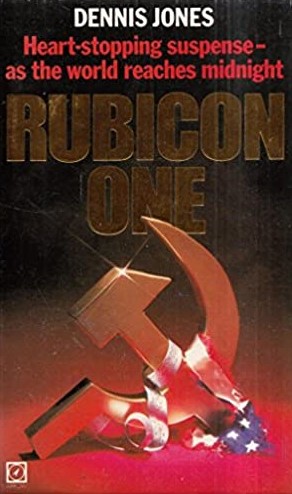
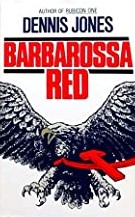
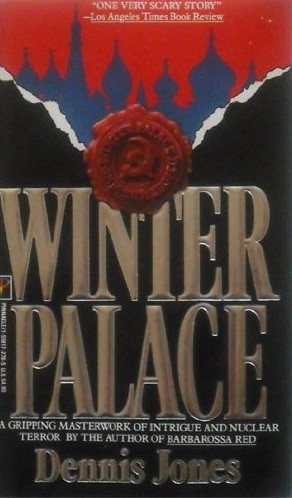
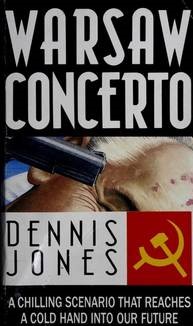
Rubicon One (1983) imagined an Arab-Soviet alliance taking an aggressive nuclear-backed stance against Israel.
Barbarossa Red (1985) had a West German Chancellor taking his country out of NATO with the Warsaw Pact seeing a chance for invasion; again, nuclear weapons to the fore.
Winter Palace (1988) returned to the theme of threats to Israel, with Soviet and Arab leaders working together and the use of nuclear weapons being planned.
Concerto (1990) —which Russia in Fiction readers know by its UK title of Warsaw Concerto, a key marker in the symbol to silhouette cover-shift— has reformist Soviet leader Mikhail Gorbachev kidnapped as rival Kremlin factions seek to preserve or reform the ailing superpower.
Hah! In typical Russia in Fiction fashion, we are reviewing every book but the one we are supposed to be reviewing – so what is Russian Spring (1984) like?
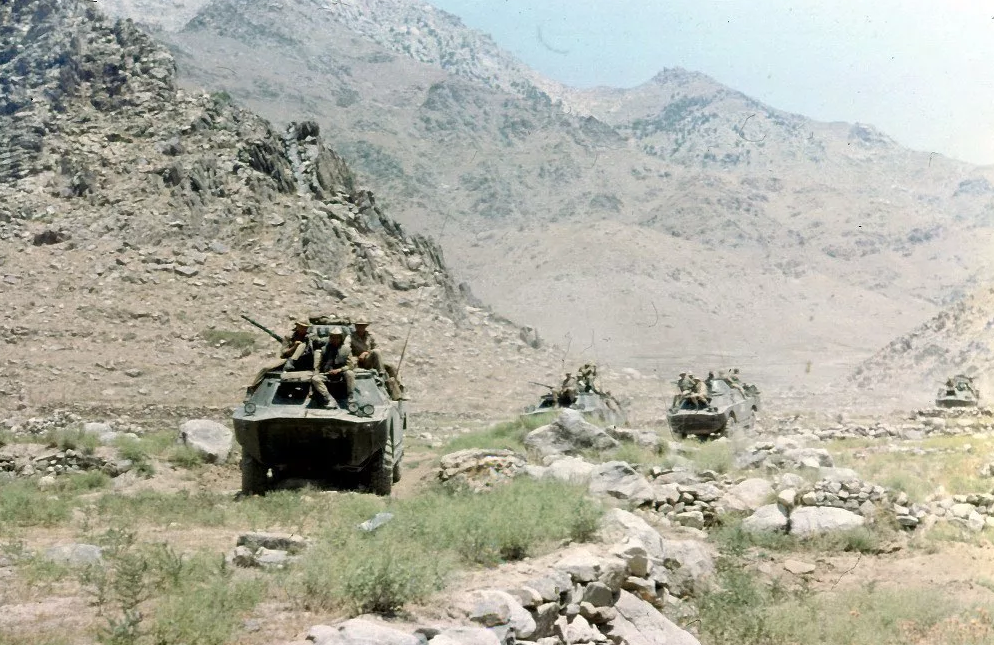
The book starts with a memorable scene-setter, as Soviet troops in Afghanistan brutalise villagers in their frustration at their inability to engage effectively with elusive Afghan fighters.
The opening serves to introduce one of Russian Spring’s main characters, Colonel Andrei Mikhailov; a sympathetic Soviet officer who happens to be the nephew of sympathetic Politburo member Vasily Romanenko. It also serves to depict a Soviet Union stuck in Afghanistan and stuck in its ideologically rigid and authoritarian ways.
Russian Spring then gets particularly interesting from the Russia-in-fiction perspective when Chernenko dies. Jones’s fiction has him dying on 26 March, though in a year deliberately kept vague — not a bad guess, as Chernenko was actually to die on 19 March 1985.
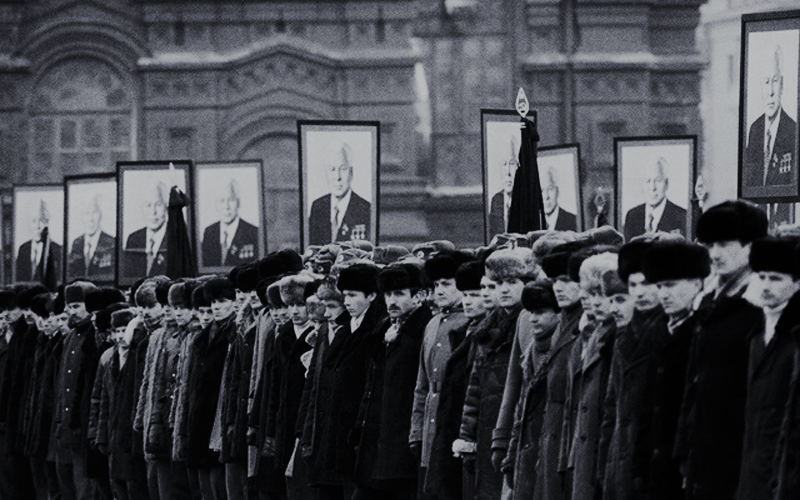
Chernenko’s death was a terrific premise for a novel published in 1984, in that it asked the question that Soviet citizens and intelligent observers of the Soviet state the world over were asking at that time – how long can things continue in this way?
Mikhail Gorbachev —the reformist Communist leader who followed on from Konstantin Chernenko in the real world— tells in his memoirs of how, the night he was appointed to lead one of the world’s only two superpowers, he took an evening stroll with his wife, Raisa, and said to her, ‘We cannot go on like this’.
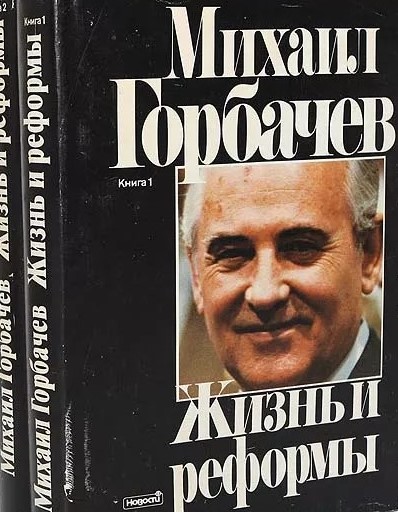
In Russian Spring, Dennis Jones sets up Vasily Romanenko as a Gorbachev-type reformer (though the novel was of course published before Gorbachev came to power) who is elected by the Central Committee to head the Communist Party, and therefore the Soviet Union, and then sets about enacting plans to withdraw from Afghanistan, reduce censorship, and loosen control over the Eastern European satellite states. Again, all things that Gorbachev himself was to do in the second half of the 1980s.
There are sections in the novel that could be taken from a real history of the Gorbachev years, rather than a thriller written before Gorbachev came to power.
Moscow, Thursday May 20 … The mood of the city was one of suppressed excitement. People seemed to be waiting for something to happen, either for a signal that they could breathe and live more freely, or that they should draw back again into the old Russian shell of silence, hypocrisy and dissimulation.
Russian Spring, p. 120
And Romanenko makes his case to the rest of the Communist Party leadership.
‘I’m not going to argue with you about what Lenin would have done … A quarter of a century ago Khrushchev promised that we’d achieve full communism by 1980. In 1980 the general population was worse off than it was when he made the promise. We haven’t been able to feed ourselves for years. Konstantin Chernenko said we were to exert every effort to overtake the west in high technology by the turn of the century. We’re further behind than ever. Children’s toys in the United States contain electronic circuits we can’t even build. One of the promises of the revolution was that we would overtake and outproduce capitalism, so that the superiority of our system would be clear to everyone. It’s far from clear to anyone with eyes to see. Comrades, we have to find a better way of achieving communism.’
Russian Spring, p. 180
The dramatic tension in Russian Spring, and where its predictive ability diverts from what was actually to happen during the Gorbachev years, comes in the strength of resistance to the reformist Romanenko from the KGB and factions of the armed forces.
In Jones’s novel, the USSR slips rapidly into civil war in the summer after Chernenko’s death, and the use of nuclear weapons becomes a real possibility in a conflict that is seen by the hard-liners as being a fight to preserve what the Communist revolution of 1917 had stood for and built.
The US response is summed up by Jones’s fictional Secretary of State remarking
‘The poor bastards are going to tear themselves to pieces. All we have to do is wait’.
Russian Spring, p. 271
To say much more would be to give away too much of the plot, which motors along effectively enough, though being a little too predictable in its caricatures of the villains of the piece. Notably, Dennis Jones’s portrayal of KGB Chief Smilga as a one-dimensional figure, happy to shoot his staff on a whim, torture opponents in the Lubyanka, and generally stomp around the novel with little in the way of subtlety or realism.
And in any case, what impresses about Russian Spring is what it tells us about how Soviet politics was perceived at the end of the Chernenko period. There is a level of prescience in Jones’s fictional analysis, and there are elements of opposition that he exaggerates for fictional effect. But, with the benefit of hindsight, Russia in Fiction cannot help noting the comparative absence of the nationalist elements that in real life were to become front and centre in the political battles that Gorbachev faced.

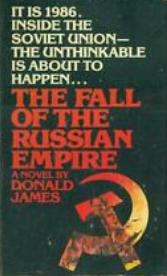
For early signs of these in the fiction of the first half of the 1980s, readers have to go to David Grant’s Moscow 5000 or —most impressively— to Donald James’s The Fall of the Russian Empire. This latter being the book most mentioned but not yet reviewed on the Russia in Fiction blog. We like it so much, we are saving it up.
[Update, we could not wait any longer and so reviewed The Fall of the Russian Empire one week after this review].